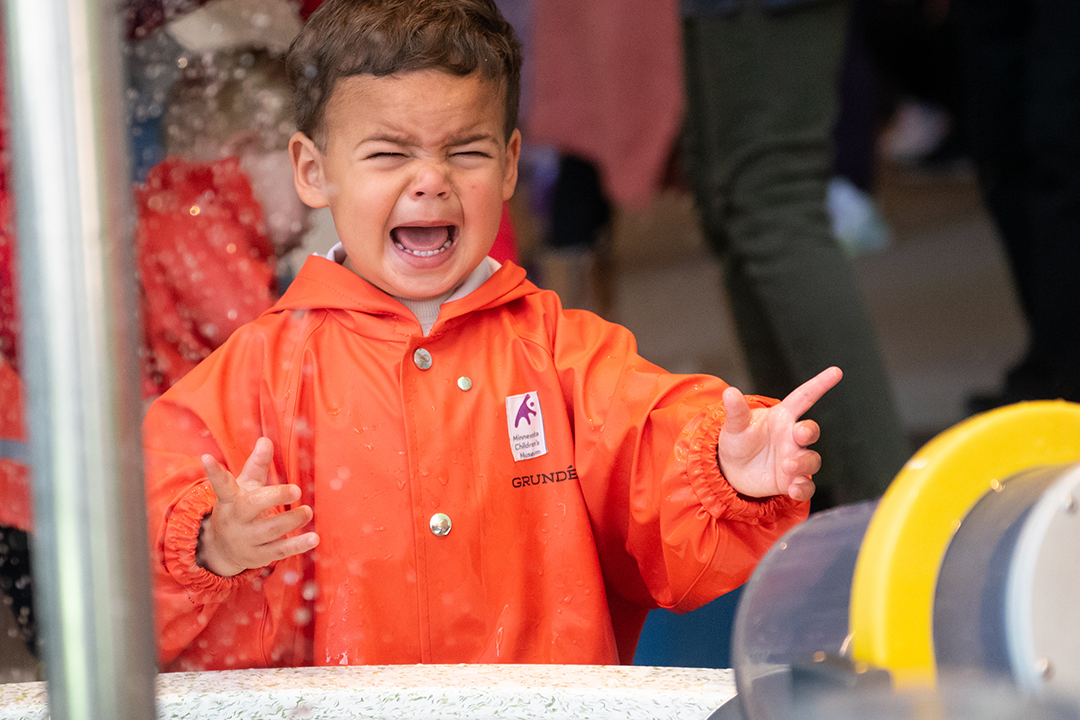
Three Tips to Help Kids Recognize and Process Emotions
As parents and caregivers, part of our job is to pay close attention to kids’ emotions and help them recognize, identify and process the incredible range of human feelings. It’s not always easy! In fact, it’s often really hard. But it doesn’t have to be.
There’s plenty you can do at home to support your child’s emotional development, too. The more tools and opportunities for practice they have, the more confidently they’ll be able to navigate childhood’s many emotional twists and turns. Here are three tips for helping kids recognize and process emotions.
Call feelings by their name.
Managing emotions begins with naming them. Help kids learn by naming your own emotions out loud as you go through the day, and guiding them to do the same. Use an expansive vocabulary. Try to avoid overuse of words like “mad,” “angry” and “happy.” Those tend to be secondary emotions, meaning they arise following something else. Try to name the root emotion. Anger is often preceded by frustration, embarrassment or unfairness. Happiness is often preceded by pride, understanding, inclusion or delight. If you need help expanding your own emotional vocabulary, read through a list of emotions, like this one, for inspiration.
Read, watch and talk.
Practice thinking about emotions and responses using books, shows and movies. Pause reading or watching to ask questions like “How do you think this character is feeling right now?” “Why do you think they’re feeling that way?” “How might they respond?” Stories are a great opportunity to talk about appropriate responses to emotions, too. Then, when your child is dealing with a similar emotion, remind them of the character and what you learned about healthy responses.
Act it out!
Pretend play is a great way to try on different emotions and strategies for handling them. Next time your child is doing a pretend activity, suggest an emotional twist. Are they hunting for dinosaurs? Pretend it’s a scorching hot day and the budding paleontologists are exhausted and grouchy. How can they reset? Or are they hosting a royal luncheon? Pretend the baby sibling prince or princess overturned every platter. How can they recover? Even simple scenarios are helpful to act out, like disagreements between friends, or feelings of exclusion. Act out the scenes in healthy, empowering ways, and then remind your child of their strategies when real life takes a tricky turn.
Emotions make life meaningful. Pay attention to your kids’ emotions, validate them and help them to choose healthy responses. Try not to hide from emotions–your own or theirs–but own them and move forward.

SUPPORTING A CHILD’S PLAY
SUPPORTING A CHILD’S PLAY
Playful Mindset Turns Chore Time into Play TIme
There’s no way around it: There are always chores to do and errands to run.
Those responsibilities don’t have to be a drag on an otherwise lovely day. What if, instead, they became a way to engage with kids and have some playful time together?
Tips for Tackling the Boredom Blahs
Kids are hard-wired to play. But even for children, the free and imaginative play that research shows is best for their development doesn’t always come easily. Sometimes their energy levels are low, daily frustrations are too high or they just can’t seem to find the inspiration to create their own fun. That’s when the dreaded “I’m bored” comes out.
Three Tips to Get the Most Out of Screen Time for Kids
Study after study shows that engaging with technology alongside your child helps them get the most out of it.
Helping Kids Manage Stress
While we can’t keep kids from feeling stressed, we can play a crucial role in helping kids feel safe and secure during stressful times.